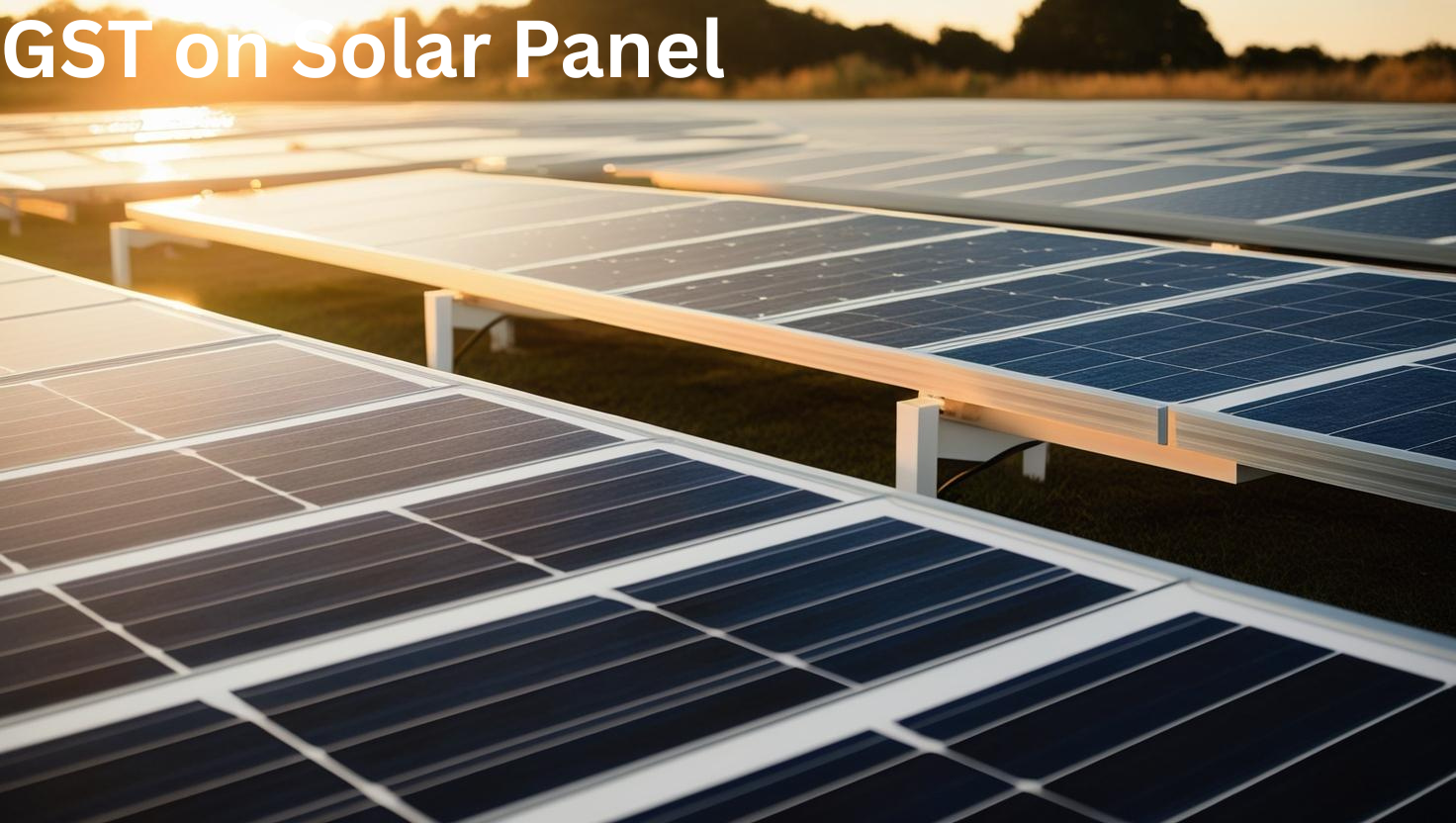Solar power is a rapidly growing industry in India, with the government promoting the sustainable growth of innovative solar projects. However, the introduction of the Goods and Services Tax (GST) has impacted the sector, including the GST rates applicable to solar power-based devices and systems.

Definition and scope of solar power based devices and system
Solar power converts renewable energy from the sun into electricity either directly through photovoltaics or indirectly through concentrated solar power. The electrical energy generated from the conversion of sunlight is called solar power. The products directly or indirectly powered by sunlight are called solar power based devices. Below are some examples of commonly used solar power based devices:
- Solar pump
- Solar charger
- Solar dryer
- Solar water heater
- Solar lamp
- Solar cooker
GST rates and HSN or SAC codes for solar power based devices and systems
| HSN code | Description | SGST | CGST |
|---|---|---|---|
| 8419 12 | Solar water heater and system | 2.50% | 2.50% |
| 85 | Solar power generating system | 6% | 6% |
| 8504 | Solar inverter | 6% | 6% |
| 85 | Solar lantern/solar lamp | 6% | 6% |
| 85414011 | Solar panels | 6% | 6% |
| 84, 85 or 94 | Solar power based devices | 6% | 6% |
| 9954, 9983, 9987 | Composite supply of goods along with the supply of construction services of the solar power plant | 70% of the value is considered as supply of goods and taxed at 12% of GST Balance 30% of the contract value is considered as supply of services and taxed at a standard tax rate of service which is 18% | |
Exemptions available for solar power based devices and systems
Under GST, no exemptions are provided to renewable energy devices and parts of their manufacture. All the renewable energy devices covered under Chapter 84, Chapter 85 and Chapter 94 are charged at 12% GST.
FAQs
Q1. How do you calculate GST on solar power generation?
For the composite supply of solar power generating systems, 12% GST is applicable on 70% of the contract value (goods), and 18% GST on the remaining 30% (services). Effectively, the total GST works out to 13.8%.
Q2. How does GST impact the overall cost of solar installations?
The introduction of GST has marginally increased the cost of solar power projects compared to the pre-GST era. However, the rationalization of rates and the 70-30 ratio for composite contracts has helped mitigate the impact to some extent.
Q3. Are solar power projects eligible for GST exemption?
Currently, there is no specific GST exemption for solar power projects. All solar power-based devices and systems are taxed at a 12% rate under the GST regime.
Q4. How much GST is on a solar power generating system?
The GST rate on solar panels and power-generating systems is 12% when supplied as a composite unit. If the components are supplied and invoiced separately, they may be treated as a mixed supply and attract different GST rates.
Q5. Applicability of GST on solar power based devices and systems?
The solar power sector is a fast-growing industry in India. Thus the government aims to promote the sustainable growth of innovative solar projects. The Indian Ministry of New and Renewable Energy wants to promote solar energy and promote sustainable growth of solar projects. All renewable energy devices are taxed at 12% GST. But, if the project includes erection, procurement, and commissioning of a solar generating system, it will fall under ‘Works Contract Services’. In this case, 12% GST will be applicable on 70% of the total contract value and 18% on the remaining 30% value. So, we can say that tax incidence on goods is at 12% and services are at 18%.
